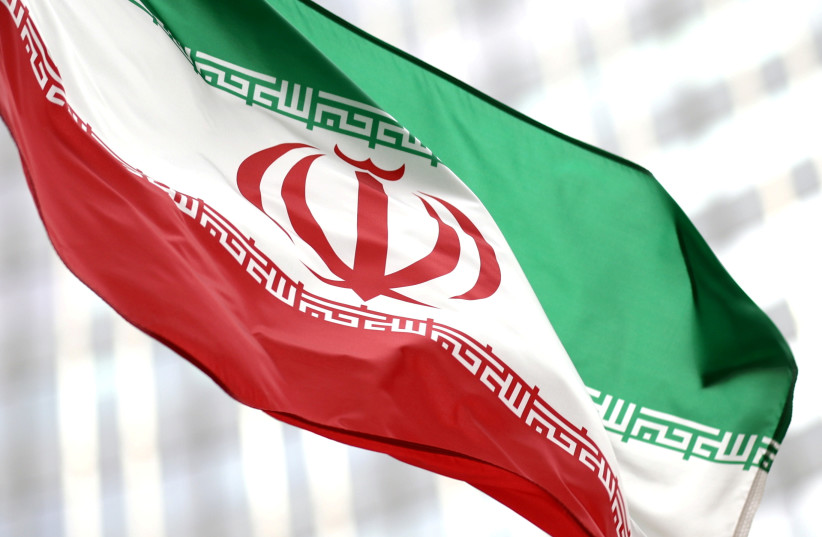NEW YORK- An administrative court in Vienna on Friday rejected the police and Foreign Ministry decision to bar Iranian dissidents from protesting in front of the hotel where nuclear talks are being held between the world powers and the Islamic Republic of Iran.
The Austrian paper Der Standard reported on Monday that the chain of events to oust the dissidents started with an email from a top EU diplomat to the general-secretary of Austria’s Foreign Ministry Peter Launsky-Tieffenthal in June, who sent the complaint, which was first initiated by the Iranian regime negotiators, to the Vienna police.
Tehran’s diplomats said the protestors caused noise that disrupted the atomic negotiations in the Grand Hotel Wien. The Vienna court flatly rejected the noise argument. The court established that the traffic noise level outside the hotel, where the protestors were located, was a decibel louder than the demonstrators on Ringstrasse, a circular boulevard that surrounds the inner city of Vienna, according to the Standard.
The court also noted that the government’s claim that “intolerable noise” was heard one day could not have happened because the police outlawed the demonstration on that day. Police reports obtained by the Standard showed that the demonstrators did not disrupt in any way the talks with loudspeakers or other activities.
An appeal of the legal ruling is not possible.
The Standard did not name the European diplomat who notified Austria’s Foreign Ministry about the alleged noise from the Iranian dissidents. The Jerusalem Post reported in June that Enrique Mora, the deputy secretary-general/political director of European External Action Service for the EU, who was present at the atomic talks, intervened to oust the Iranians who protested across from the Grand Hotel Wien.

The Post obtained a copy of the police order at the time banning the Iranian dissidents’ protest, which was labeled “Stop the dictator in Iran.” In a Skype conversation with the Post in June, Atusa Sabagh, an Iranian dissident, said the Vienna police told protesters that then-Austrian foreign minister Alexander Schallenberg, who is the current chancellor, said they “are not allowed to protest.” Sabagh said the protestors told the police that “we will not accept that.”
IRANIAN DISSIDENT Sholei Zamini, who has protested for more than ten years against human rights violations carried out by the clerical regime in Tehran, told the Standard the ruling “showed that the Austrian judiciary can overcome pressure from abroad.”
Annemarie Schlack, the director of Amnesty International in Austria, told the paper that "the decision of the administrative court is gratifying, but unfortunately too late. The demonstrations could not take place in June. We needed legal certainty at that time."
Mora, the Italian diplomat, who Iranian dissidents say has gone to great lengths to placate the theocratic state in Tehran by urging the Austrian Foreign Ministry to silence their protest, sparked intense criticism in August. Nine members of the European Parliament formally complained to EU foreign policy head Josep Borrell about Mora’s presence at the inauguration of Iranian President Ebrahim Raisi in August.
“Sending such senior representation to the inauguration of a president with such a dark record, at this sensitive time, contradicts European commitments to uphold and stand up for human rights,” noted the MEPs, who added that Raisi’s victory was “a sham election,” and that he has an “appalling record of personal responsibility for the most heinous of human rights abuses.”
The US government sanctioned Raisi for his roles in the mass murder of over 5,000 Iranian prisoners in 1988 and a second mass murder of at least 1,500 protestors in 2019.
The nuclear talks, which are slated to restart on November 29, seek to bring the Iranian regime into compliance with the 2015 Joint Comprehensive Plan of Action (JCPOA), the formal name for the nuclear deal signed between Iran and the world powers. The agreement provides temporary restrictions on the regime’s capability to produce a nuclear weapons device in exchange for economic sanctions relief.
The US withdrew from the JCPOA in 2018 because American officials said it did not stop Tehran from developing the world’s deadliest weapons. The US is also negotiating about its re-entry into the pact.
Iranian dissidents and critics of the JCPOA say the deal is fatally flawed because it ignores the Iranian regime’s horrific human rights records, violent repression of its citizens and Tehran’s sponsorship of international terrorism. The planned deal, argue critics, does not seek to restrict the regime’s ballistic missile program. The US government under both democratic and republican administrations has classified Iran’s regime as the world’s worst state-sponsor of terrorism.
